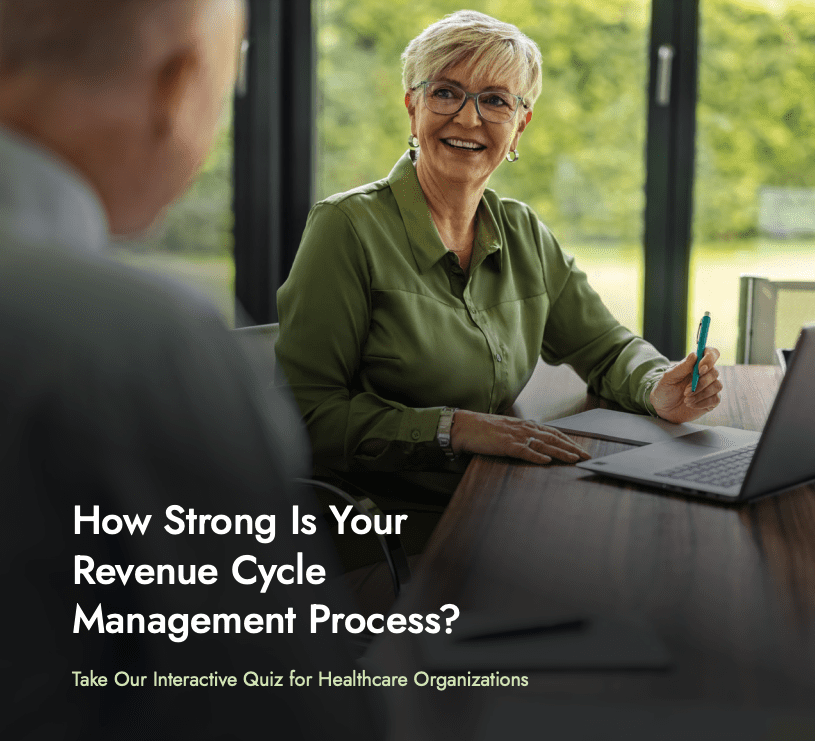Claim denials are expected to keep increasing — both in terms of frequency and reasons. What’s the good news for healthcare revenue cycle managers? You can get claims paid with smart use of technology and education — but there is a sense of urgency since it’s already happening.
“It will be imperative for medical practices and organizations to focus on their billing and denial management to maximize revenue in 2023,” noted Cristy Good, MPH, MA, senior industry advisory and coding expert at MGMA.
Claim denials cause revenue loss at a time when hospitals are facing a serious financial crisis. “This can cause a reduced cash flow, which can cause an organization to have a harder time paying bills and meeting their financial obligations,” said Andrew Hajde, CMPE, director of content and consulting at MGMA.
Denied claims quickly become uncollectible. Primary care practices have a median of 24% of their accounts receivable (A/R) over 120 days old, according to MGMA’s 2022 Cost and Revenue Survey.
“It’s not unusual for medical practices to lose 5 to 10% of their A/R due to denials, bad debt or other factors. That is a huge amount of revenue for medical practices, which are often struggling financially,” said Hajde.
Why are claim denials happening?
Healthcare.gov health plans denied about 18% of in-network claims, according to a Kaiser Family Foundation analysis of over 230 million claims. Consumers very rarely appeal the denied claims — just over one-tenth of 1% did so in 2020. That leaves hospitals and medical practices to try to get all the denials overturned.
However, revenue cycle departments are struggling with staffing shortages. At the same time, payer changes are happening more often, reimbursement is taking longer, and claim errors are increasing, according to the State of Claims 2022 report from Experian.
Top reasons
Most revenue cycle professionals surveyed (73%) said between 5 to 15% of claims are denied. “Processing claims is one of the top contributors to wasted healthcare dollars in the U.S., and it doesn’t seem to be improving,” said Jason Considine, chief commercial officer at Experian. The survey respondents said denials were happening for these reasons:
- The organization didn’t have enough data to identify submission issues.
- Staff needed more training and in-house expertise to prevent denials.
- There was a lack of automation to improve claim accuracy and prevent denials.
- The department was using inadequate technology to manage denials.
Constantly changing payer requirements
Experian Health recorded over 100,000 payer policy changes for coding and reimbursement between 2020 and 2022. Lack of transparency on all those updates, rule changes, and new policies cause many denials. “It’s incredibly challenging for providers to keep up,” said Austin Brennen, AVP of revenue protection at Ensemble Health Partners.
10 trending reasons for claim denials
Health plans are using many of the same reasons to deny claims — but they’re doing it more often. “Payers are frequently becoming more stringent on what they deem to not be medically necessary,” said Hajde. Here are 10 new reasons health plans are using to deny claims:
- Payers are using third parties to evaluate claims for medical necessity.
In some cases, prior authorization from the payer doesn’t cross over to the third party. “This causes claims to deny due to ‘no auth,’ in error,” said Viviana Beland, senior director of front-end revenue cycle at Moffitt Cancer Center.
- Claims are being denied for exceeding the limit established by the payer.
“HMO and PCP-driven plans limit the number of visits or services we can provide,” said Beland.
- Some insurance companies have a list of “preferred” infusion drugs and won’t pay for other drugs.
Moffitt’s revenue cycle staff has found a workaround to avoid these denials. When doctors place orders for a drug that isn’t on the list, staff obtain authorization for the preferred drug instead. “We communicate the change to the pharmacy team. This process avoids delays in authorizations and denials,” said Beland.
- Some Medicare Advantage plans are denying authorization for hospitalization.
The reason given is that the claim fails to meet inpatient criteria. “This is happening even though clinical documentation supports medical necessity and the stay meets the ’2-midnight’ rule per CMS guidelines,” said Jennifer Ward, CRCS, denial specialist supervisor for patient financial services revenue integrity at Sharp HealthCare.
- Payers are finding ways to underpay valid claims.
One tactic is by downgrading the DRG — often with sepsis cases. Another tactic is that payers do give authorizations but won’t pay the claim until medical records and itemized bills are submitted. “It’s a stall tactic, and a way to avoid payment. The payer’s intent is to do line-item denials,” said Ward.
- Payers are making it hard to appeal by giving no clear explanation for the denial.
Increasingly, Explanation of Benefits codes don’t give the correct denial (or underpayment) reason. Overly general codes mean staff must call the health plan to find out why. “It makes it very labor-intensive and difficult to collect money due,” said Ward.
- Some insurance companies use third-party vendors to handle authorizations.
In some cases, services that don’t require authorization are getting denied for not having one. “It’s because the third party, not the insurance company, requires an authorization,” explained Brennen.
- Issues with payer systems are causing retired edits or requirements to be mistakenly reactivated during system updates.
“This causes erroneous denials,” said Brennen.
- Payers are targeting claims for medical necessity in the emergency department.
“Payers are placing the burden on the providers to prove that the patient needed to be in the emergency department,” said Amy Hayes, MBA, senior director of revenue cycle services at Great Plains Health. Some insurance companies are targeting ER patients they deem non-emergent. “They have their own proprietary criteria, and it’s different from national standards, causing ER denials for level of care,” said Brennan.
- Payers are denying claims for “site of service.”
“This is to shift procedures away from the hospital to [less expensive] standalone clinics or physician offices,” said Brennan.

More articles in this series
10 Steps To Optimize Your Revenue Cycle Management →
Top 10 Training Priorities for the Healthcare Revenue Cycle →
Optimizing Revenue Cycle Management and Clinical Documentation Integrity To Avoid Coding Disasters →
Revenue Cycle Management Outsourcing: Training Must Be Top of Mind →
Prevention is the #1 solution for claim denials
What can be done to stop the tactics that health plans are using? Proactive revenue cycle leaders are fighting back with education and technology. “Prevention is the number one thing you can do to fend off denials,” underscored Good.
On the department level, antiquated processes and technology need updates. “The industry must reduce manual methods and look to automation to help with accuracy and efficiency,” said Considine.
Sharp HealthCare is forming a committee to implement a Rapid Appeal Response to Denials and Underpayments. Revenue cycle leaders identify the root cause of denials and put them in “preventable” or “non-preventable” categories.
At Emory Healthcare, better documentation and reporting through the Epic system resulted in their Denial Management Action Plan. “This categorizes our most pressing denials and quantifies them in terms of dollars lost or at risk,” said Pete Kraus, CHAM, CPAR, FHAM, business analyst for revenue cycle operations at Emory Healthcare.
Steps to combat denials
Brennan offered a roadmap to stop unfair claim denials:
Step 1: Have health plans outline their processes for using third-party authorizers. This way, you can hold payers accountable for incorrect “no auth” denials.
Step 2: Educate staff. Drive home the point that claim denials have a financial impact on the organization — and prevention eliminates hours of rework.
Step 3: Thoroughly review payer contracts. “The amount of policy changes and updates that occur each year makes it incredibly difficult for providers to stay ahead, stay compliant, and avoid delayed or lost revenue,” said Brennan.
Some revenue cycle departments are using robotic process automation (RPA) and artificial intelligence (AI). However, there aren’t many AI solutions yet specifically for claims management. “In 2023, we expect to see more providers embracing solutions such as using AI,” said Considine.
With all the complexity and variables, denial prevention and management will continue to be a pressing concern for healthcare revenue cycle managers.

How strong is your revenue cycle management process?
With all the variables that come into play, it can be difficult to tell how efficient your organization is. How do you know if your revenue cycle and coding processes are optimal? Our guide can help provide insights to direct you in your analysis.
Download the guide →





